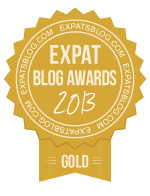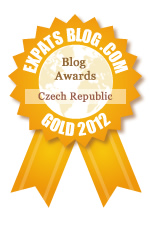 When Russia annexed Crimea from Ukraine, it triggered a show of support from Czechs for two reasons. One because the annexation was very similar to Hitler's annexation of the Sudetenland, and two because Czechs, and Slovaks, still remember the Soviet-ed, Warsaw Pact 1968 invasion of Czechoslovakia following the Prague Spring.
When Russia annexed Crimea from Ukraine, it triggered a show of support from Czechs for two reasons. One because the annexation was very similar to Hitler's annexation of the Sudetenland, and two because Czechs, and Slovaks, still remember the Soviet-ed, Warsaw Pact 1968 invasion of Czechoslovakia following the Prague Spring.
 When Russia invaded Ukraine, the Czech government introduced a number of unilateral sanctions against Russia, plus the sanctions introduced by the EU.
When Russia invaded Ukraine, the Czech government introduced a number of unilateral sanctions against Russia, plus the sanctions introduced by the EU.
Czechland was the first EU country to stop issuing visas to Russian citizens except for humanitarian cases. Plus the government started to review already-issued residency permits for Russians living here.
The Ministry of Finance began inspecting Russian companies, and companies with Russian owners, to make sure none were receiving public funds.
The government sped up the process of withdrawing from two Russian banks - the International Bank for Economic Cooperation and the International Investment Bank.
 It's important to note that the EU has had sanctions against Russia going back to 2014 when it first illegally annexed Crimea. But with the invasion, additional sanctions have been levied.
It's important to note that the EU has had sanctions against Russia going back to 2014 when it first illegally annexed Crimea. But with the invasion, additional sanctions have been levied.- There were targeted sanctions against the 351 members of Russia's Duma, plus another 27 individuals
- The restriction of economic relations with the separatist regions of Donetsk and Luhansk
- The restriction of Russia's access to the EU's capital and financial markets
- the financial sector
- the energy and transport sectors
- dual-use goods
- export control and export financing
- visa policy
- additional sanctions against Russian individuals
- new listing criteria
- Vladimir Putin's assets were frozen
- Sergey Lavrov, the Russian Minister for Foreign Affairs, had his assets frozen
- restrictive measures were imposed on members of Russia's National Security Council and members of the Duma who supported recognition of Donetsk and Luhansk as independent countries
- an additional package of individual and economic measures were introduced covering finance, energy, transport and technology sectors plus visa policy
- a ban on transactions with the Russian Central Bank
- €500 million support package to finance military equipment and supplies for Ukraine's armed forces
- closure of EU airspace and no access to EU airports by Russian carriers
- new sanctions on another 26 people and one entity
- investing, participating, or continuing to future projects co-financed by the Russian Direct Investment Fund
- selling, supplying, transferring or exporting Euros to Russia or to any person or entity in Russia
- broadcasting of Russia Today and Sputnik
 On 9 March, restrictions were put in place halting the export of maritime navigation goods and radio communication technology to Russia. Plus restrictions on an additional 160 people including:
On 9 March, restrictions were put in place halting the export of maritime navigation goods and radio communication technology to Russia. Plus restrictions on an additional 160 people including:- 14 Russian oligarchs
- 146 members of the Russian Federation Council
 Also on 9 March, the EU put sanctions in place against Belarus to include:
Also on 9 March, the EU put sanctions in place against Belarus to include:- restrict three Belarusian banks from SWIFT
- prohibit transactions with the Central Bank of Belarus
- prohibit transactions by Belarusian state-owned entities in EU trading venues
- significantly limit the financial inflows from Belarus to the EU
- prohibit the provision of Euros to Belarus
- all transactions with certain state-owned enterprises
- the provision of credit rating services to any Russian person or entity
- new investments in the Russian energy sector
- trade involving iron, steel or luxury goods
- imports from Russia of coal and other solid fossil fuels
- all Russian vessels from accessing EU ports
- Russian and Belarusian road transport operators from entering the EU
- imports of other goods such as wood, cement, seafood and liquor
- exports to Russia of jet fuel and other goods
- deposits to crypto-wallets
- a ban on imports from Russia of crude oil and refined petroleum products, with limited exceptions
- a SWIFT ban for another three Russian banks and one Belarusian bank
- suspension of broadcasting in the EU by three more Russian state-owned outlets
- sanctions against an additional 65 people and 18 entities including those responsible for atrocities committed in Bucha and Mariupol
 On 21 July, the seventh package of sanctions were put in place to prohibit the purchase, import or transfer of Russian-origin gold, including jewellery. The ban on port access was extended to include locks, with sanctions against another 54 individuals and 10 entities including Sberbank.
On 21 July, the seventh package of sanctions were put in place to prohibit the purchase, import or transfer of Russian-origin gold, including jewellery. The ban on port access was extended to include locks, with sanctions against another 54 individuals and 10 entities including Sberbank.- a price cap related to the maritime transport of Russian oil for third countries
- additions to the list of restricted items prohibited for Russia's military and technological enhancement
- additional restrictions on trade and services with Russia
- sanctions on an additional 30 individuals and 7 entities.

































No comments:
Post a Comment